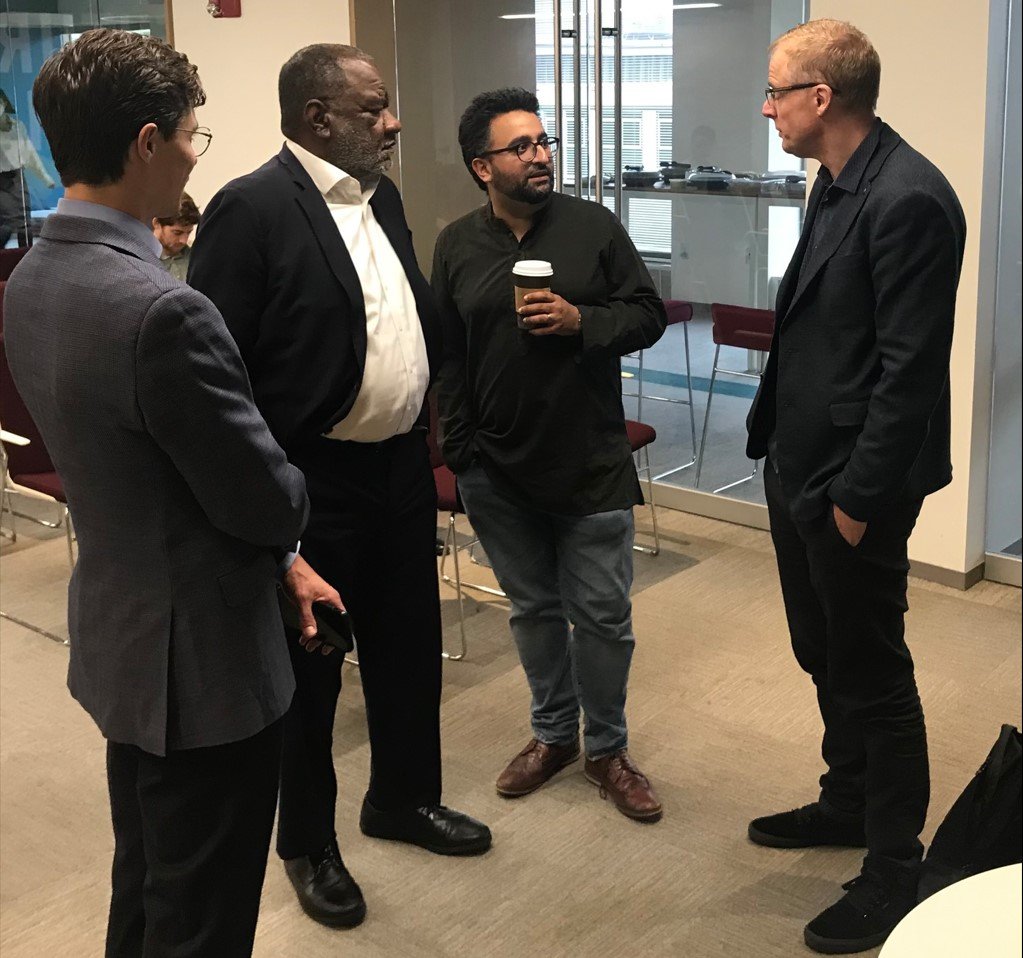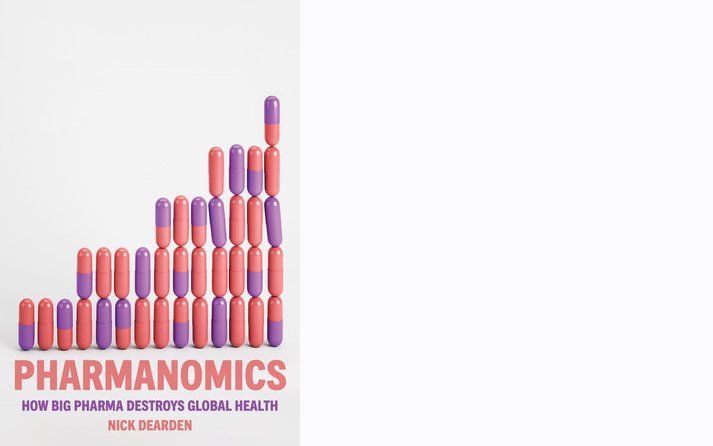In which Oxfam sponsors a great conversation with author Nick Dearden about his new book, Pharmanomics, along with Gavin Bade from Politico, and Lori Wallach from Rethink Trade.
On September 26, Oxfam hosted a thoughtful and wide-ranging conversation in our Washington, DC office about a new book by our friend and ally Nick Dearden. While Pharmanomics focuses on the pharmaceutical industry, it uses that lens to cover a lot of ground — on topics such as the origins of neoliberalism, global trade, corporate power, financialization of healthcare, the links between climate justice and health justice, and the racism and colonialism that still permeate the international economic rules and norms.
Oxfam’s Maaza Seyoum welcomed the crowd, and introduced Dearden, along with Lori Wallach from Rethink Trade (who gave opening remarks), and Gavin Bade from Politico (who conducted the interview).
A few moments from the session follow.

LORI WALLACH:
We're here in the belly of the beast, where we're telling all the rest of the world: Do it like us — see, this is so great… But more and more the results of the agreements that were in the delivery mechanisms of that model were experienced in the U.S. Life expectancy went down, deaths of despair went up. We saw incredible inequality, we saw rage in numerous communities.
The viability of someone like Trump captured that rage. And I think also, the final sort of coup de grâce was COVID, which was the book end to the global financial crisis. It was like, the tide going out, and all the crap you don't want to look at that you kind of know is down there — you were staring at. And you couldn't get basic stuff in the richest country in the world because the supply chains were so brittle, or it was just in time, and there is no redundancy, and there is no resilience.
And you basically had a level of uncertainty finally, even here, which you then saw connected to the Global South, because you saw the horrible results of what happened. You saw people without access to anything. And probably for the first time for a lot of people in the U.S., they experienced something kind of similar where it wasn't just at your fingertips. I think that was a transformational moment.
GAVIN BADE:
When I got this invitation [to moderate the event], I was a little bit puzzled — why do you want me to talk about a pharmaceutical industry book as a global trade reporter? But as soon as I got into Nick's book, I saw exactly why. Because this is a book about an industry that helped shape that neoliberal paradigm that we are maybe emerging from right now.
It's such an interesting time to talk about it right after the COVID pandemic really took the mask off of the neoliberal era and all of these policies, and exposed a lot of the power politics behind this industry and how it has shaped all of these paradigms that we thought we were going to live with forever and are now questioning…
You talk about Jonas Salk, about the polio vaccine... he was asked about patenting the polio vaccine and he said, "Well, it belongs to the people — could you patent the sun?" And now we've patented these lifegiving materials themselves.

NICK DEARDEN:
After the Second World War, the pharmaceutical industry as we know it, the companies we know today, developed. Massive companies.
And that was partly because we were changing as a society, there were developments that changed the way we relate to drugs, and medicines, right? So antibiotics, and steroids and vitamin supplements and tranquilizers, and whatnot, we became more addicted to drugs in one way or another. And that also brought a kind of critique of who's making this stuff. But it brought a lot of money for the pharmaceutical industry….
When TRIPS came in, countries couldn't do that anymore. There was a phase-in time for the least developed countries, and the very poorest countries are still on that phase-in time. But by and large countries were suddenly unable to do that.
And so, you may have your political freedom, but your economic freedom is being curtailed by these laws that have been developed at the World Trade Organization that essentially allow Western corporations to drain wealth and resources out of your economy, because that's what TRIPS does, ultimately.
So, part of the problem here is the power we have handed these companies under these international rules, which has given them the upper hand over governments, in some cases. And governments are going to have to develop a backbone and pour in the public money to make up for the private money, which these companies still have a right to — under our current laws — withdraw at a moment's notice. So, you know, I think that economic reality is there as well. And it's not easy…
I would say the lesson of the pandemic is we can really do great things. If we put our minds to it, if public money public directions are set, you can solve the problem of how you stop people dying of Coronavirus. And of course, that has huge implications now for how we deal with climate change.
________________________________________________

- Oxfam issue brief on Technology transfer as a U.S. foreign policy priority.
- To hear from Nick Dearden directly, please watch this interview on YouTube.
- He will be on tour in the UK starting this week (October 11).



